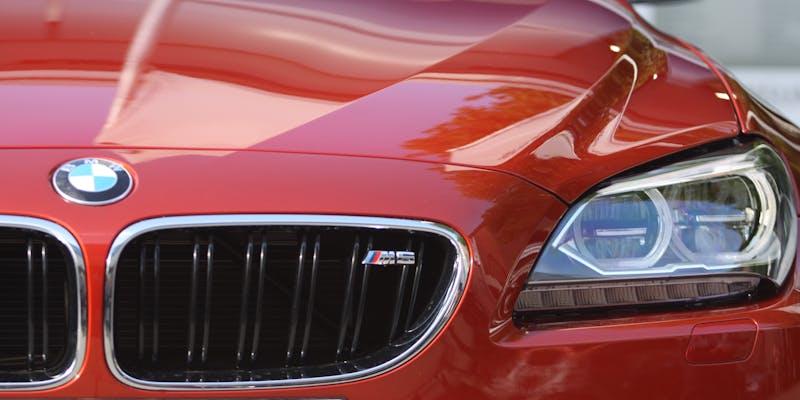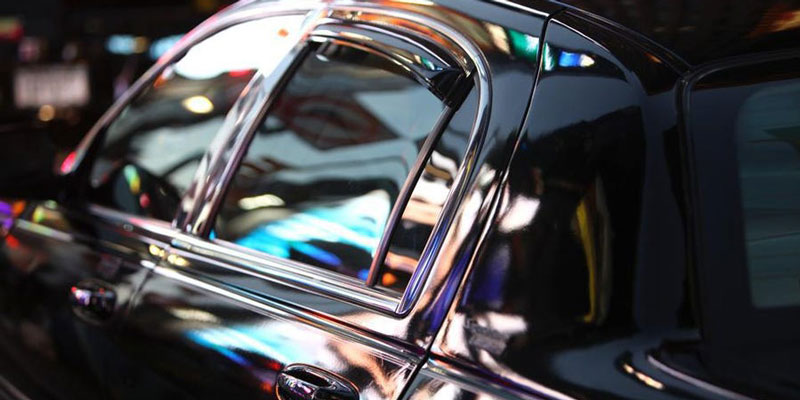What are the Luxury Automobile Limitations? Meaning and Examples
A person's capacity to deduct the cost of a luxury car utilized for business activities is difficult to achieve with an annual cap called the Luxury Automobile Limitation. This sum is inflation-listed annually. Luxury car transport regulations limit corporate spending on luxury cars for tax purposes. The TCJA increased business owners' first-year depreciation on some assets by $8,000.
Understanding Luxury Car Limits

The 2017 Tax Cuts and Jobs Act (TCJA) altered corporations' and individuals' deductions, luxury automobile depreciation, and expensing. These included revisions to vehicle depreciation standards, particularly for premium autos. Corporations, self-employed individuals, and taxpayers have deductions, depreciation, and expensing adjustments under the TCJA. The limits on luxury car depreciation deductions for vehicles and vehicles have been super. The measure also enhanced the first-year depreciation allowance for certain assets by way of $8,000, encouraging business enterprise investment.
Limits on Luxury Car Depreciation
The TCJA's deduction and bonus depreciation rules apply to automobiles over a specified threshold. Bill Bischoff of MarketWatch says $58,000 is the threshold. Vehicles beyond this amount have separate depreciation standards for high-end automotive. Businesses can use TCJA bonus depreciation and deduction provisions for automobiles over $58,000. Otherwise, depreciation must be calculated using MACRS.
Definition of Luxury Cars
The IRS defines a "luxury vehicle" as a four-wheeled vehicle with an unloaded gross weight of 6,000 pounds or less, mostly operated on public highways. Instead of focusing on car brands or models, this definition of luxury automobile depreciation emphasizes the vehicle's physical qualities and primary use. The IRS wants to clarify and standardize tax treatment by classifying luxury automobiles by weight and usage.
Vehicle owners' tax ramifications, including deductions, depreciation, and other tax benefits, depend on this definition. Luxury car transport may have different depreciation schedules or tax deduction limits than other vehicles. The IRS guarantees fairness and uniformity in tax assessments across various cars by stressing objective qualities rather than subjective opinions of luxury. This method helps taxpayers comply with tax laws by clarifying their vehicle ownership tax obligations and benefits.
Extension of Bonus Depreciation
Bonus depreciation for qualified belongings bought after September 27, 2017, and earlier than January 1, 2023, changed into prolonged and amended by TCJA. This provision allows firms to accelerate depreciation deductions and minimize taxable income for business automobiles and other qualified assets. According to the TCJA, luxury car transport has different depreciation schedules based on cost. Vehicles over $58,000 are depreciated differently. The TCJA encourages investment in higher-cost assets while treating vehicle classifications equally.
Depreciation for Heavy Vehicles
SUVs, vehicles, and vans have special depreciation guidelines than motors. The depreciation allowance for these motors is typically 100% to a minimum of 50%, primarily based on their commercial enterprise use. Unlike high-end automobiles, which may be restricted through value or luxury, SUVs, vans, and pickups are depreciated depending on their enterprise use.
Businesses use high-end automotive for transportation and logistics. The tax legislation gives them better depreciation treatment to reflect their unique character and utility. This strategy recognizes the importance of SUVs, vans, and pickups in diverse industries and guarantees that businesses can fully benefit from tax savings.
Luxury Car Restrictions

The 2017 Tax Cuts and Jobs Act (TCJA) preferred agencies to shop for new and used premium passenger motors for business usage. Taxpayers must comprehend those luxury automobile depreciation provisions to maximize depreciation advantages while complying with tax laws.
100% First-year Bonus Depreciation Eligibility
Luxury passenger automobiles used 100% for business between December 31, 2017, and December 31, 2026, are eligible for one hundred first-year bonus depreciation beneath the TCJA. This incentive allows corporations to deduct the entire car value in the first year of possession because of large upfront tax savings.
Maximum Depreciation Deduction Without Bonus
In the absence of bonus luxury automobile depreciation, the TCJA schedule determines the maximum luxury passenger vehicle depreciation deduction:
- $10,000 for first year year
- $16,000 for second
- $9,600 for third
- $5,760 for each subsequent taxable year throughout recovery.
This schedule allows taxpayers to depreciate the vehicle's cost over recovery time gradually.
Schedule of Bonus Depreciation
The TCJA provides an accelerated depreciation schedule for luxury car transport, allowing taxpayers to deduct more early on:
- First year: $18,000
- Second year: $16,000
- Third year: $9,600
- Each subsequent taxable year during recovery: $5,760
This expedited schedule frontloads depreciation deductions, giving businesses instant tax savings and cash flow in early vehicle ownership.
Classification Changes for Listed Properties
The TCJA no longer lists computers and related equipment for properties installed after December 31, 2017. This high-end automotive update streamlines company depreciation standards by removing stated property categorization constraints.
Future Considerations and Sunset Provision
Remember that the TCJA's advantageous depreciation provisions are sunsetted. The extra luxury automobile depreciation deduction will decrease in 2023 and disappear in 2027 unless Congress extends it. Taxpayers should monitor legislation changes and schedule vehicle purchases and depreciation accordingly.
Luxury Car Limitation Deduction Examples
Investing in a town automobile to take them to and from the airport can be a smart business while serving luxury clients. Companies can use depreciation deductions to maximize tax advantages from acquisitions under the Tax Cuts and Jobs Act (TCJA).
Annual Deductions with First-Year Bonus
A $70,000 town vehicle eligible for the first-year bonus deduction would have the following annual depreciation deductions:
- First year: $18,000 (bonus deduction)
- Second year: $16,000
- Third year: $9,600
- Subsequent Years: $5,760 for remaining depreciable term
Due to the TCJA's accelerated depreciation, these deductions save businesses a lot of money in the early years of vehicle ownership. Businesses considering buying pre-owned luxury car transport must cautiously investigate eligibility and call a CPA or monetary consultant to comply with tax legal guidelines and maximize deductions.
Final Verdict
As defined by the IRS and inspired by the Tax Cuts and Jobs Act (TCJA), agency luxury automobile depreciation deductions are limited. These restrictions apply to depreciation and deduction allowances for passenger automobiles, SUVs, vans, and pickups. Bonus depreciation clauses can increase tax benefits, especially for expensive passenger automobiles, although they may sunset. Taxpayers must comprehend these regulations and engage with tax professionals to comply and optimize tax strategy.







